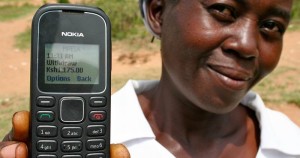A Facebook billionaire is handing tons of cash to poor people in East Africa
Published on: October 28, 2015

Helping poor countries develop is really, really hard. The history of foreign aid, from governments and the World Bank and NGOs alike, contains some real success stories, but it also contains stuff like PlayPumps, a plan backed by then-first lady Laura Bush to use merry-go-rounds as water pumps, which wound up requiring children to engage in hours upon hours of drudgerous “play” to deliver as much water as promised. No one has found the definitive model for how to grow a poor country into a rich one, or, more relevantly, how to speed up growth in poor countries that are already growing.
But if putting countries on a sustainable growth path is hard, making them less poor is easy: You can just send over money. And that’s exactly what more and more philanthropists and aid organizations are starting to do. Case in point: Good Ventures — the foundation founded by Facebook and Asana cofounder Dustin Moskovitz (net worth: $9.6 billion) and his wife, Cari Tuna, who oversees its day-to-day operations — just gave $25 million to GiveDirectly, a charity that sends unconditional cash grants of about $1,000 each to desperately poor people in Kenya and Uganda. Of their gift, $16 million to $19 million will be part of those transfers.
To put that another way: One of the richest people in the world has decided to just hand over at least $16 million to some of the poorest people in the world, to use as they see fit.
Why just giving cash to the poor is so radical

There are a few reasons this is a remarkable strategy. One is that cash transfers are among the best-studied approaches to fighting global poverty, and the results are very positive, with various studies finding that just handing out money increases consumption, encourages investments in important assets like metal roofs, encourages more people to start working, boosts earnings, and doesn’t lead to more spending on things like alcohol or tobacco. GiveDirectly’s strategy stands out as among the most evidence-based of any charity working on global poverty.
But it also stands out because it’s, in theory, more or less infinitely scalable. There are other very good, evidence-based ways to help the world’s poorest people, such as supplying free anti-malarial bednets and providing deworming pills. But they tap out at some point. We could reach a point, if all goes well, when everyone in regions where malaria is prevalent will have free access to bednets treated with insecticide that can kill mosquitos and thus save lives. We could reach a point when everyone at risk of worm infection has gotten deworming meds. But we’re very, very unlikely to reach a point in which transferring $1,000 from an affluent American to a poor person abroad ceases to make the world a better place. Money will always be more valuable to the poor than to the rich, and so cash transfers will always have the benefit of redirecting money to where it’s most needed.
And indeed, about $6 million to $9 million of the gift is expected to go to marketing and fundraising, so GiveDirectly can scale its model aggressively. And of the $16 million to $19 million left for transfers, a sizable amount will be spent in cooperation with other NGOs and government organizations, the idea being that if GiveDirectly can spend a relatively small amount demonstrating to richer groups that cash transfers can work, those groups will pour in considerably more resources in the future.
Story From: www.vox.com






